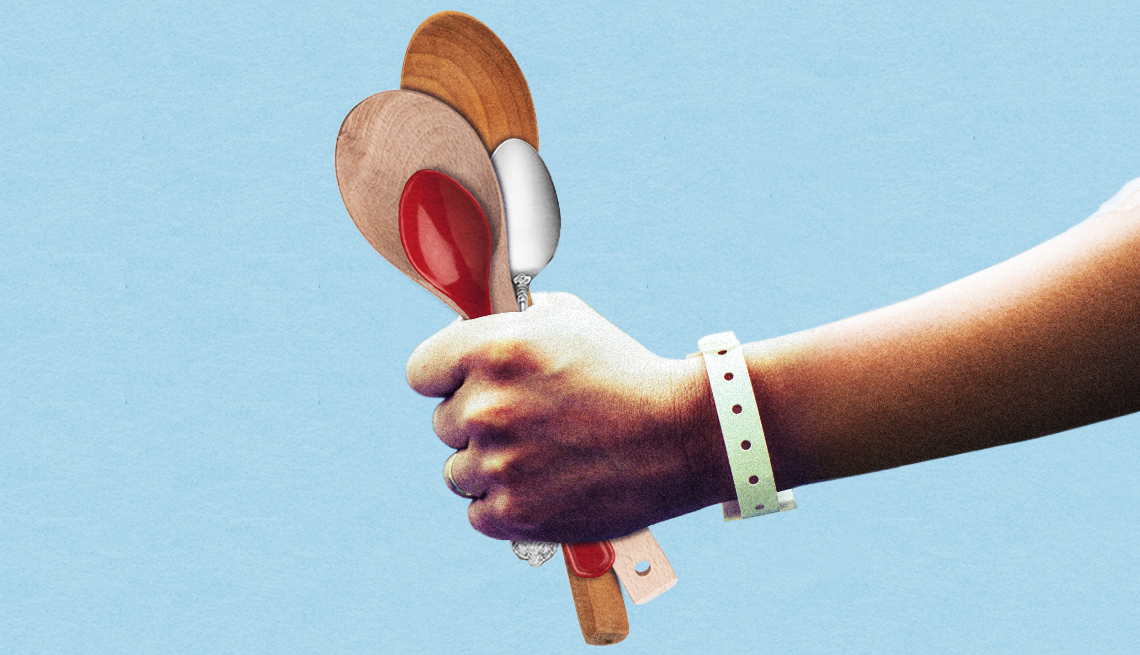Play all audios:
Most people wouldn’t second-guess these seemingly simple activities. For me, they are luxuries. Once I use a spoon, I can’t reuse it. Sometimes, I must lie down after using just three spoons
and rest until I can use another one. The infusions I mentioned earlier? They start around 8:00 a.m. By 1:00 p.m., I have no more spoons left. Malea Wilson, who lives outside of Chicago,
also has CVID. She suffers from Ehlers-Danlos Syndrome and postural orthostatic tachycardia syndrome. The former leaves her with muscle pain and weakness, torn ligaments and dislocations.
The latter causes irregular heartbeats, dizziness and hypotension. “I’m likely to dislocate joints walking, rolling over in bed or coughing,” said Wilson, an English teacher. “Just when I
think I’m stable, I’m thrown a curveball.” Wilson said each day she uses so many spoons, she’s left with practically noneby the weekend, causing her to “crash.” Wilson and I must make
concessions to get through each day. We both pay someone to come and clean our homes. We use a grocery delivery service and sometimes order dinner because we are too pained or fatigued to
cook. It’s crucial to budget our energy by using the spoons carefully throughout the day. We may borrow from tomorrow’s spoons, but that could be the day we get an infection, as Miserandino
explained. No one wants to run low on supply because we never know when we will need a spoon. Spoon Theory helps me prioritize tasks, set boundaries and say no when necessary. It also helps
me cope with the uncertainty and variability of our conditions, as I may wake up some days with fewer spoons than others. Spoon Theory can also be a tool for self-compassion and acceptance,
as it reminds people with chronic illness that they are not lazy or weak but have a different capacity than others. Spoon Theory has taken on a life of its own since Miserandino’s chat with
her friend. It is now widely cited in the medical community. Our illnesses are here for the duration. As Miserandino wrote, she "can never forget she has lupus," but her Spoon
Theory allows me to meet daily challenges and lead a more fulfilling life.

